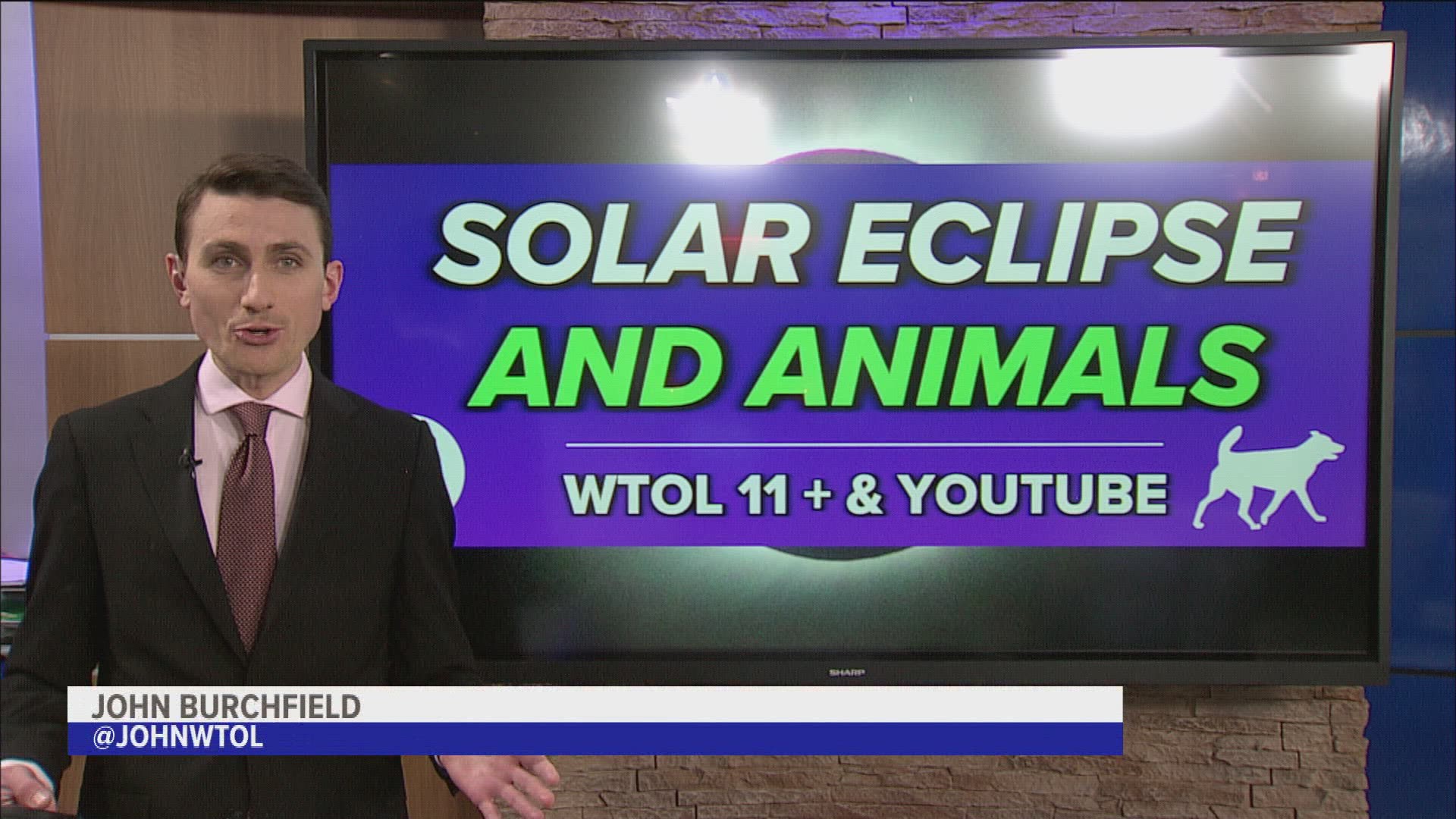TOLEDO, Ohio — On April 8, a historic total solar eclipse will sweep across the United States as the moon passes between the earth and sun. The eclipse will engulf the sky in darkness during the middle of the day, creating the illusion of nighttime.
During totality, the moon will totally obscure the sun, making the sky look pitch black. This midday darkness may throw off your natural rhythm, confusing both the body and mind. These eclipse effects will be even more noticeable in animals.
How will the total solar eclipse impact your pets, zoos and wild animals? WTOL 11 Meteorologist John Burchfield explains.
Let’s start off with household pets. Whether you have a dog, cat or reptile, you may need to prepare your pet for the solar eclipse. Much like loud noises and bright lights affect your animals mentally and physically, the darkness of totality may confuse your pets.
Some dogs are perplexed or frightened by the sudden arrival of pitch black skies, but generally, the impacts are less startling than the loud noises and bright lights of fireworks and thunder.

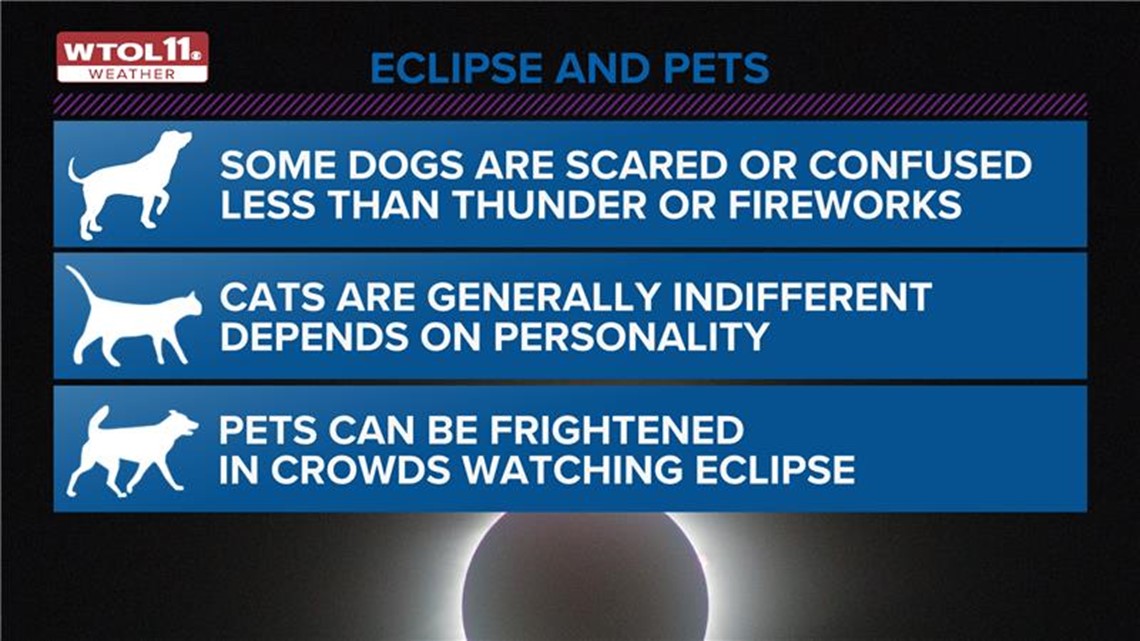
The specific impacts of the eclipse will depend on the personality of your dog. Keeping your dog at home in a familiar, comfortable setting during the solar eclipse will reduce the risk of an adverse reaction.
Cats, on the other hand, are rarely bothered by a solar eclipse. This probably isn’t surprising to cat owners. Cats have far more important things to worry about, like jumping up on your countertop and knocking things over. In all seriousness, the effects of the eclipse will depend on the personality type of your cat, though most felines are oblivious and unaffected.

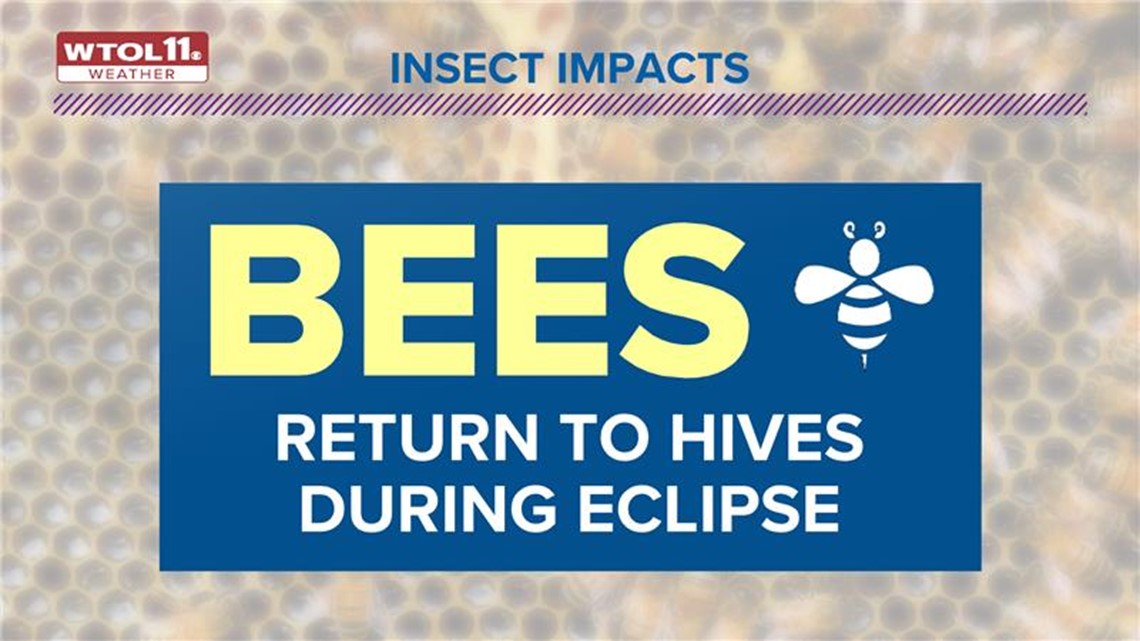
Even if the darkness of the eclipse doesn’t faze your pet, the chaos of a crowd waiting for totality may be more unsettling. If you’re planning on watching the eclipse at a public park or community area with a big crowd, keep your pet’s emotions in mind. Your pet may feel overwhelmed by the crowded setting of an eclipse viewing, so consider watching from a more remote area or staying home.
So how will the total solar eclipse impact other animals? Scientists conducted observational research on small animal behavior during the May 30, 1984, eclipse. During totality, chimpanzees at the Atlanta Zoo climbed to the top of a tall structure in their enclosure. Chimpanzees are intelligent enough to know that the sun’s absence is temporal, much like a toddler knows that you’re still present during a game of peek-a-boo.


The chimps in this study climbed to the top of their exhibit and pointed their bodies and faces in the direction of the sun. Their intellect was validated when the sun gradually returned after totality.
How will the eclipse impact birds? Paul Murdin conducted research on these animals of aviation in the African savanna during the June, 2001, eclipse, the first solar eclipse of the millennium.
Murdin’s research, published in Astronomy & Geophysics, found that doves were silent during totality and sang their morning songs when the sun returned. The absence of sunlight tricked the doves into thinking night had set in and the return of sunshine triggered their intrinsic response to sing a morning tune.

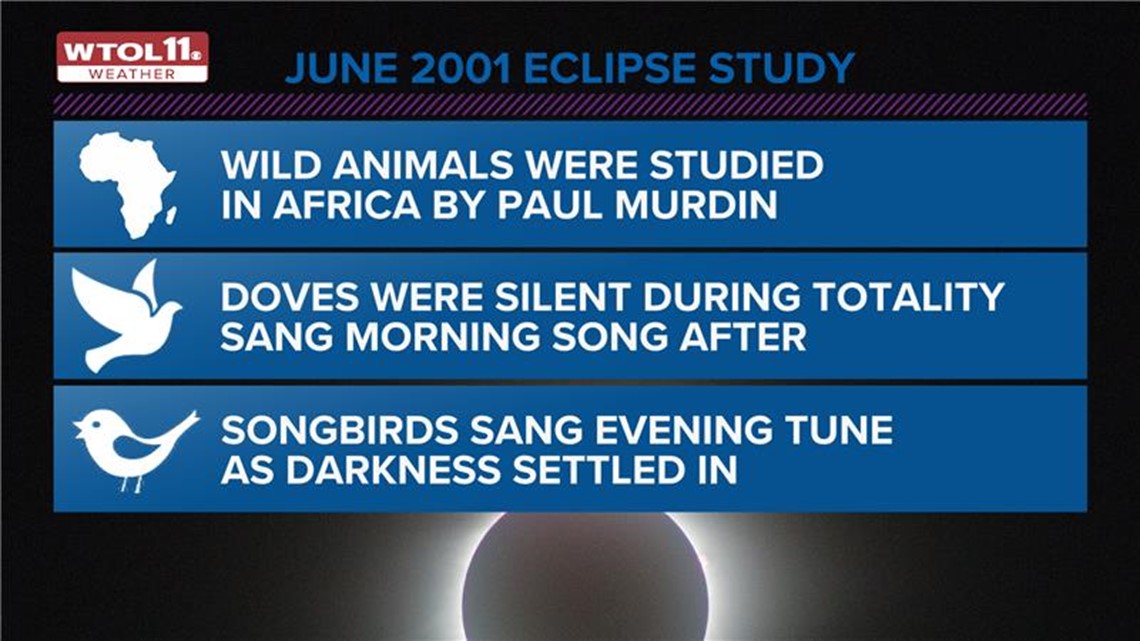
In similar fashion, songbirds hummed their evening song when the moon started passing in front of the sun, immersing Africa in darkness.
The birds proceeded to return to their homes and complete their evening routines, fooled by the brief darkness. Murdin found that owls were the only birds that were not silent during totality. A nocturnal species, owls embraced the darkness of the solar eclipse.

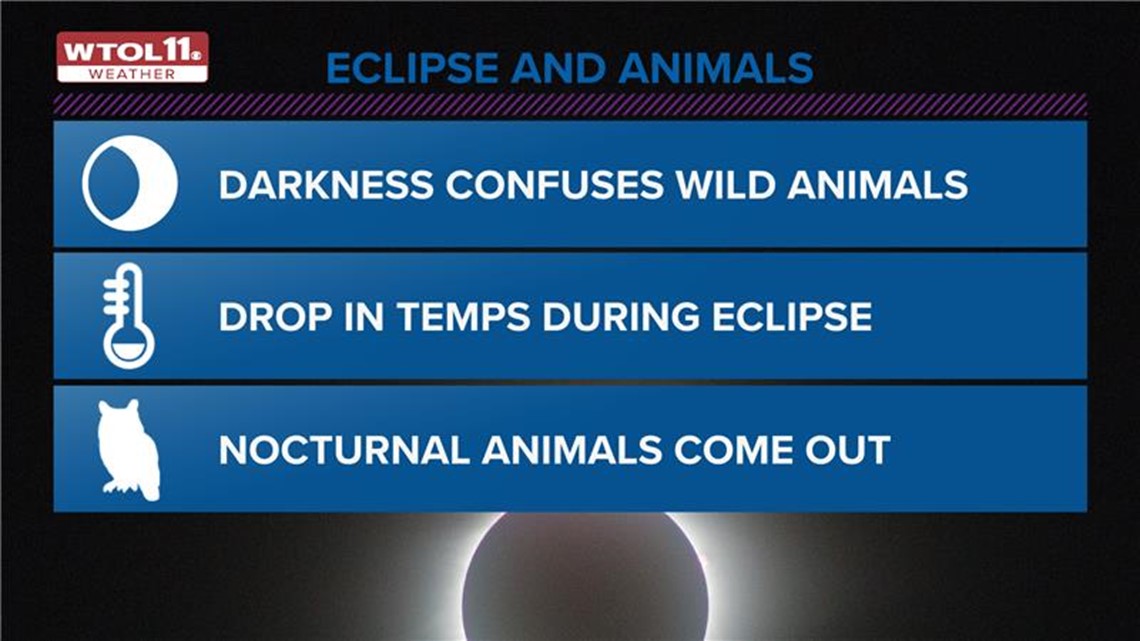
Murdin’s research shows the profound impacts of an eclipse on wild animal behavior. The 2024 eclipse will likely induce similar responses in the wildlife of northwest Ohio and southeast Michigan.
What about other species, including the creepy crawlies of the animal kingdom? Research from 1991 during the solar eclipse examined frogs, crickets and cicadas. During the darkness of the eclipse, crickets and frogs sang their dusk choruses, fooled into believing nighttime had set in.
The quick change in daylight cued intrinsic animal behaviors associated with nighttime. When the eclipse reached 50% totality, cicadas went silent, not because of the darkness but due to the temperature drop.


During a solar eclipse, the Mercury plunges due to the loss of radiational heating from the sun. Eclipse research has captured meteorological observations reflecting a 5.5-degree drop in temperature attributed to the sun’s disappearance.
Researchers have recorded the coldest temperature 20 minutes after totality. This same phenomenon occurs in the morning when temperatures drop to the “overnight low,” which often occurs shortly after sunrise. The sudden drop in temperature due to the Moon blocking the sun also caused cicadas to turn silent during this 1991 study.


Last but not least, spiders alter their behaviors substantially based on the darkness associated with a solar eclipse. Research during the 1991 eclipse in Mexico examined the impacts of the eclipse on web building.
During totality, spiders performed their usual nighttime ritual of taking down their webs. When the Sun returned after the eclipse, they quickly rebuilt their webs, a behavior associated with morning. The return of daylight cued the innate behavior of spiders to build webs at sunrise.
Now, here’s where it gets interesting. The researchers added an experimental group that received artificial light during the eclipse. While the control group immersed in darkness during the eclipse took down their webs, the experimental group kept their webs up.


The presence of light, even from an artificial source, inhibited the spiders from performing their nighttime web removal procedure during the pseudo nighttime of totality. This research shows that light is the biggest factor that impacts spider behavior during an eclipse.
In the April 8 total solar eclipse, you may notice unusual animal behavior. You can send photos of your pets and other animals on the free WTOL 11 weather app.
With the eclipse just around the corner, now is the time to plan ahead and prepare your pets for daytime darkness. The WTOL 11 weather team will continue to update you on the impacts the solar eclipse will have on the region.

